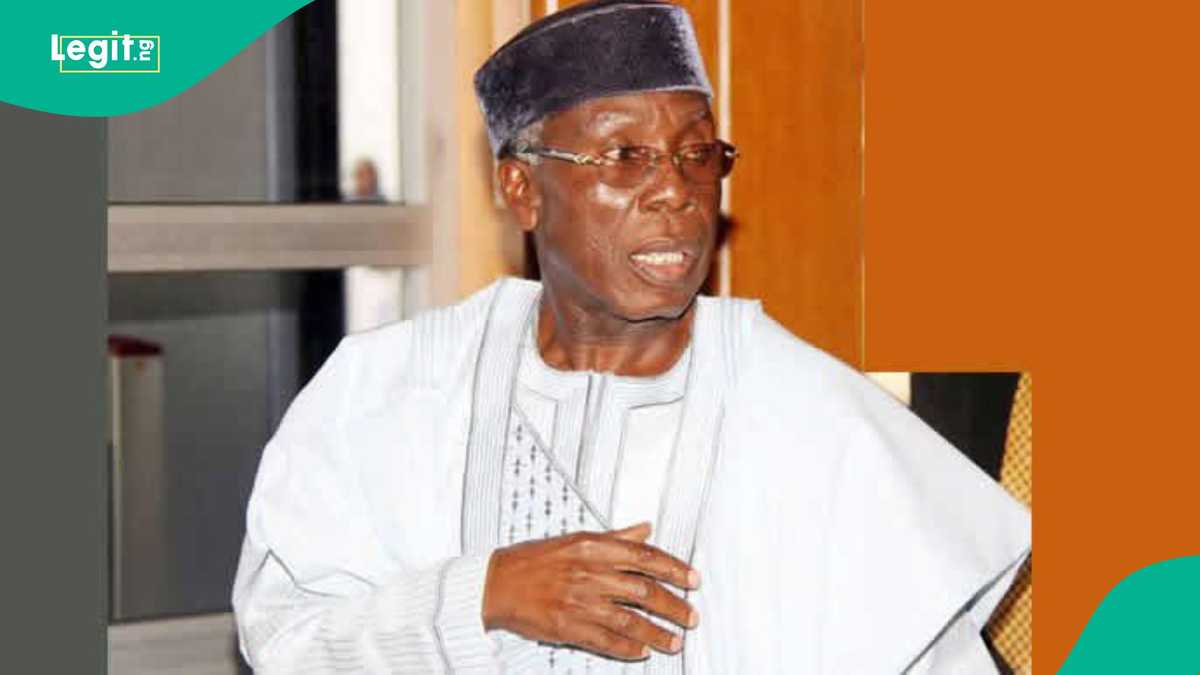7 Must-Know Facts About Late Audu Ogbeh

Nigeria has lost a respected figure in the person of Audu Innocent Ogbeh, who passed away on Saturday, August 9, 2025. The former Minister of Agriculture and Rural Development during the first term of former President Muhammadu Buhari, Ogbeh left behind a legacy that shaped both national politics and the agricultural sector.
Ogbeh, originally from Benue State, was known for his contributions to governance and education. His life story is filled with notable achievements and roles that made him a significant personality in Nigerian history. Here are some key facts about the late statesman:
Early Life and Education
Audu Innocent Ogbeh was born on July 28, 1947, in Otukpo, Benue State. His parents, late Pa Ejembi Ogbeh and Madam Egbi Ogbeh (née Odinya), hailed from Efugo-Otukpa in Ogbadibo Local Government Area of Benue State. Ogbeh's early education took place at King’s College in Lagos, where he obtained his Higher School Certificate (HSC) in 1968. He then pursued higher studies at Ahmadu Bello University, Zaria, earning a Bachelor of Arts degree in French between 1969 and 1972. Later, he earned a Master of Letters degree in French literature from the University of Toulouse in France in 1974.
Career in Education
After completing his first degree, Ogbeh worked as a teaching assistant at the Institute of Education, Ahmadu Bello University, Zaria. He played a crucial role in overseeing the teaching of the French language in the northern states. In 1977, he was appointed as the Head of Department of Languages, Arts and Social Sciences at the Murtala College of Arts, Science and Technology. He held this position until 1979, after which he continued to contribute to the academic landscape.
Political Contributions
Ogbeh’s political journey began in 1979 when he was elected as Deputy Speaker of the Benue State House of Assembly. He served in this capacity until February 1982. His political career saw several high-profile appointments. In 1982, President Shehu Shagari appointed him as Federal Minister of Communications. He was reappointed in 1983 with a new portfolio focused on Steel Development, a role he held until the coup d’état on December 31, 1983.
Ogbeh returned to the political arena in 2015 when he was appointed as the Minister of Agriculture and Rural Development during the first term of former President Muhammadu Buhari. He served in this capacity until May 2019, leaving a lasting impact on Nigeria’s agricultural policies.
Leadership in the PDP
In addition to his ministerial roles, Ogbeh served as the National Chairman of the Peoples Democratic Party (PDP) from 2001 to 2005. During this time, he played a pivotal role in shaping the party’s strategies and expanding its influence across the country. His leadership extended beyond his home state of Benue, making him a prominent figure in national politics.
Agricultural Ventures
Beyond his political and academic pursuits, Ogbeh was also a successful farmer. He established various agricultural enterprises, including rice mills, cashew plantations, and poultry farms. His investments in agriculture reflected his commitment to improving rural development and food security in Nigeria.
Remembering Another Notable Figure
In a separate note, it is worth recalling the passing of another prominent Nigerian, Senator Ibrahim Musa. A loyalist of former President Muhammadu Buhari, Musa died in Abuja after a brief illness. His death occurred just a month after Buhari’s passing in a London clinic. His life and contributions were celebrated, with five major facts about his legacy being highlighted in tribute to his service.

Comments
Post a Comment